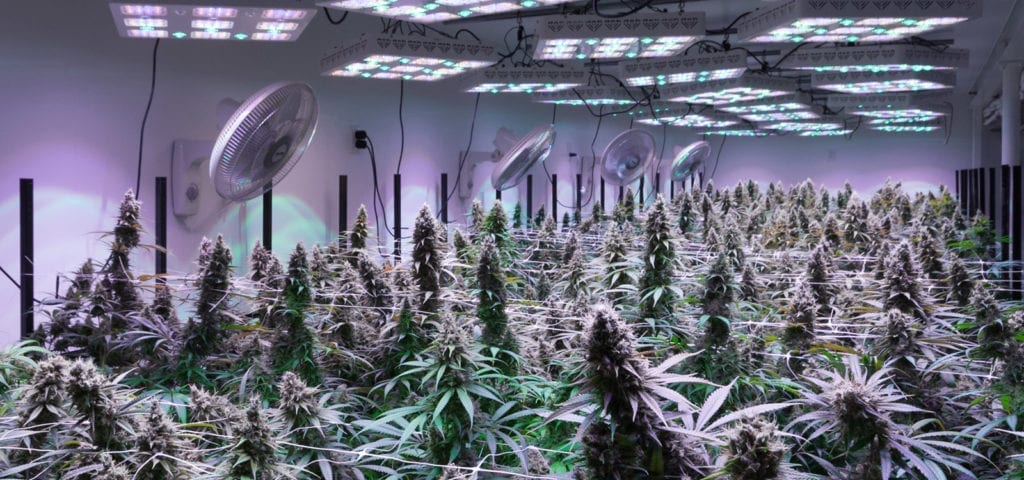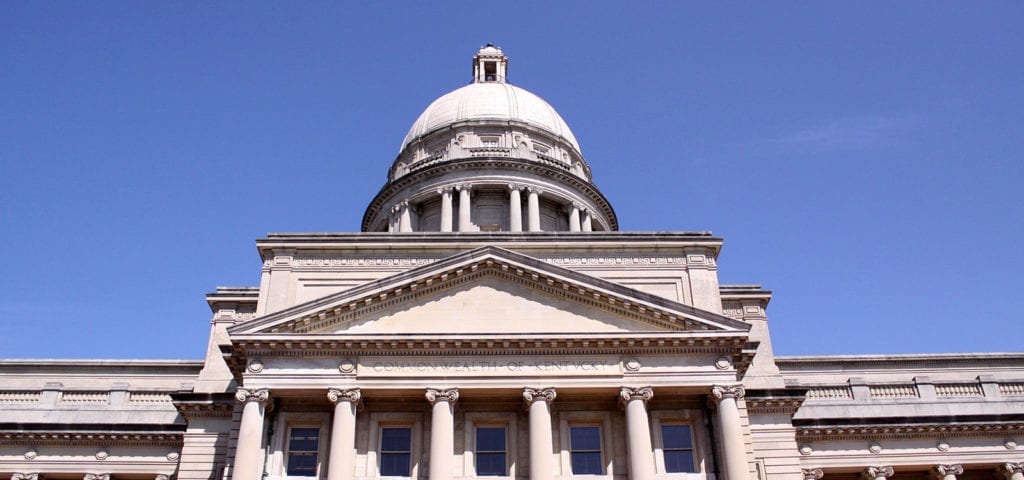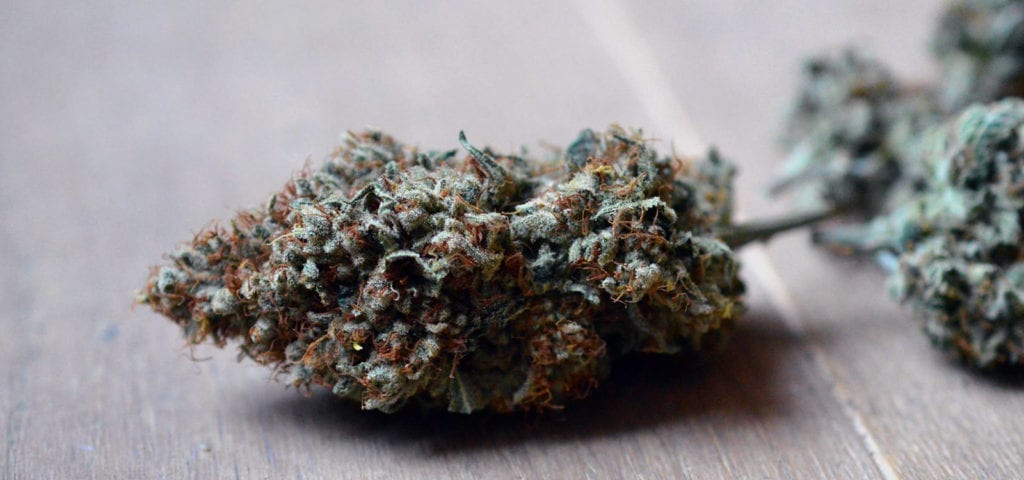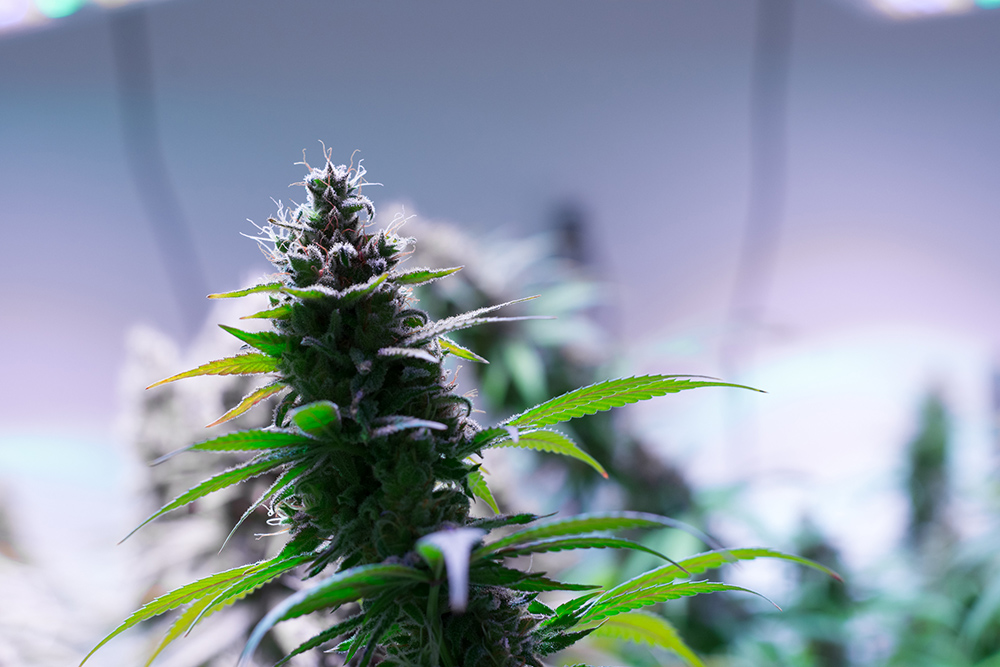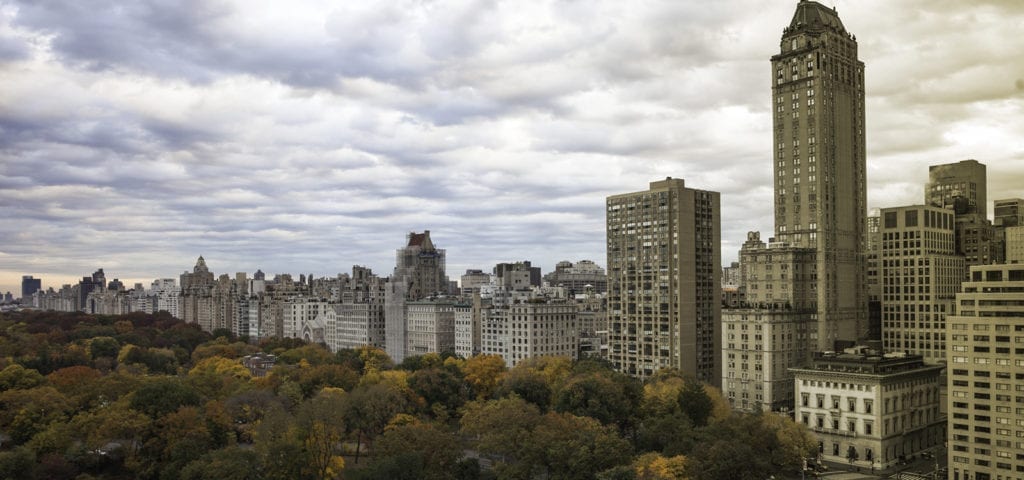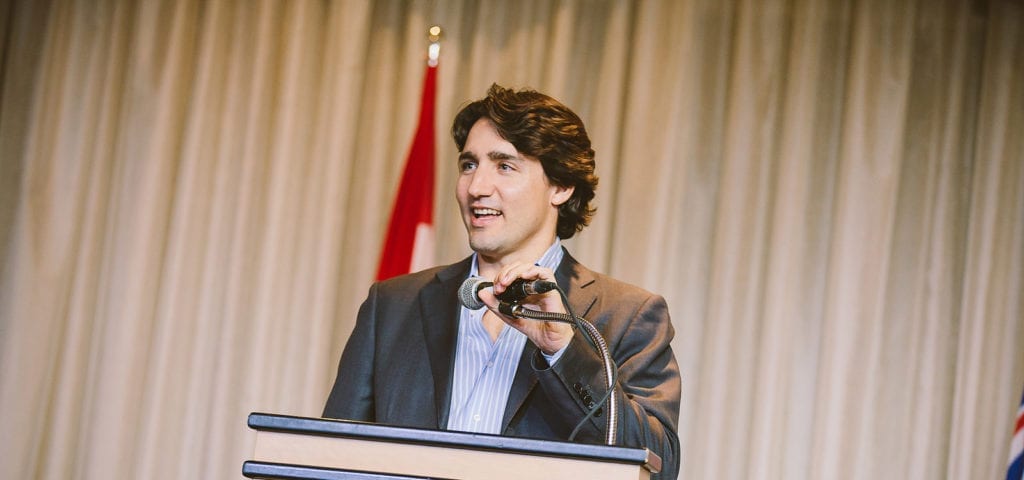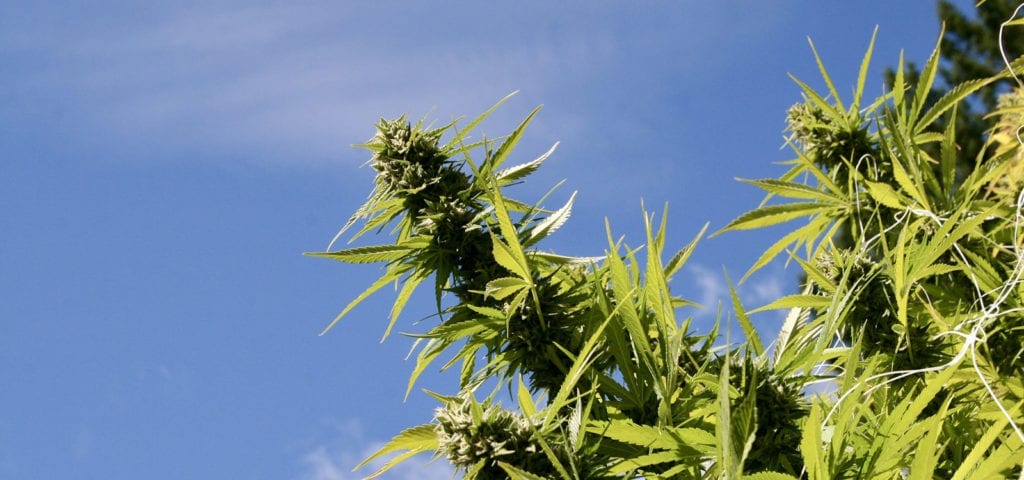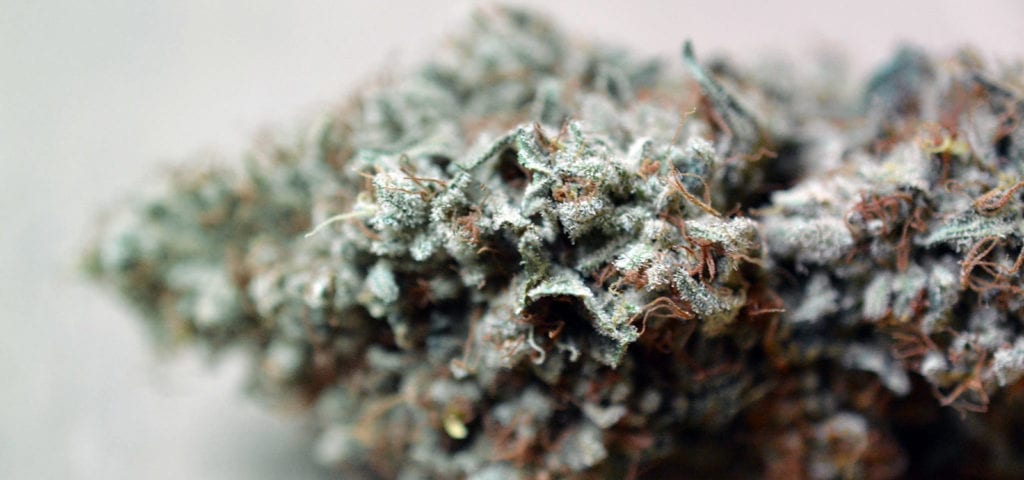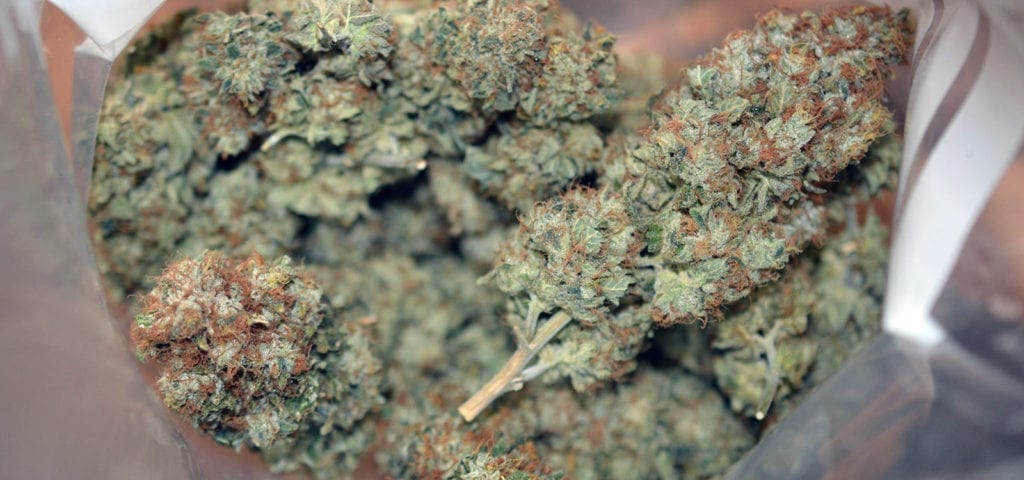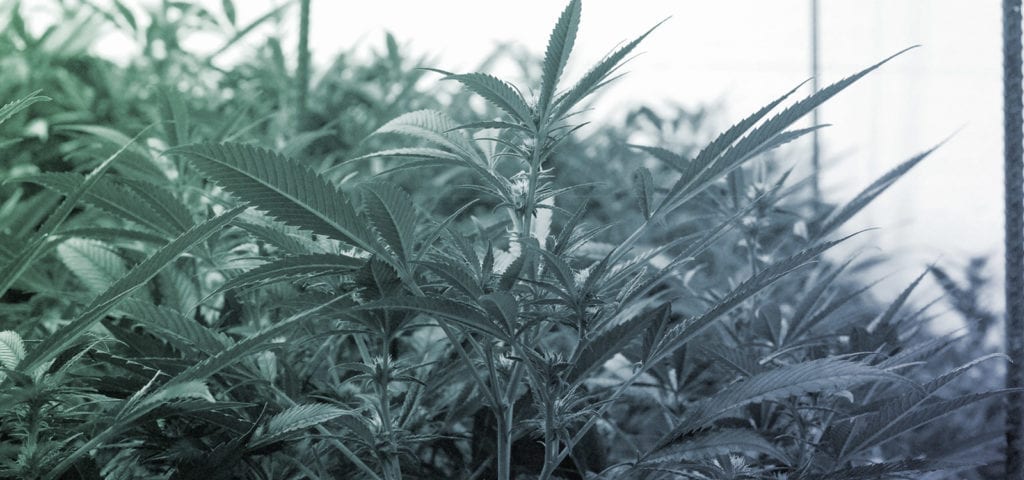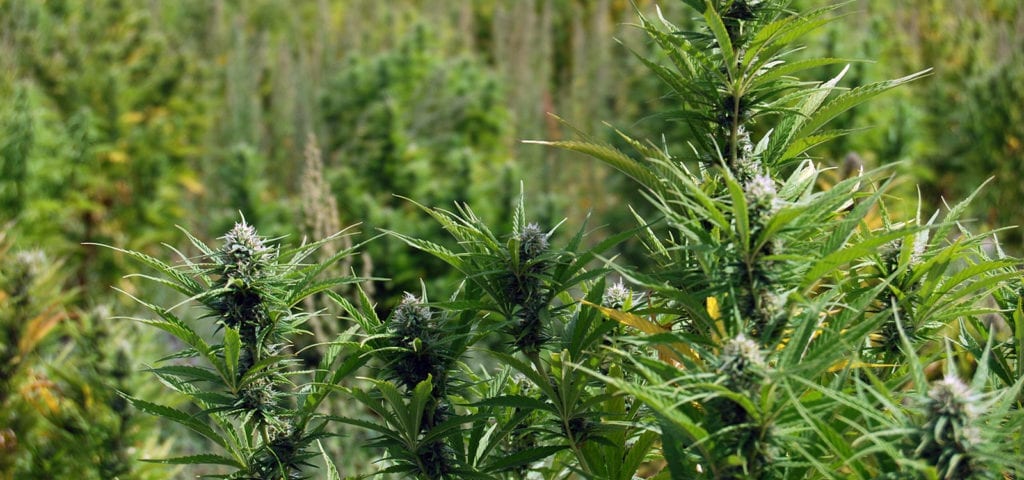If you have ever looked up information about a particular cannabis strain online, there is a good chance you are familiar with the website Leafly.com. Leafly is one of the most widely-used and well-known web resources for cannabis enthusiasts and medical patients worldwide, and it has greatly influenced the world of visual design in the cannabis industry. The website was launched in 2010 by Cy Scott, Brian Wansolich, and Scott Vickers, three friends & coworkers who still had day jobs in the tech industry. Two years later, they sold the company to cannabis investment firm Privateer Holdings, and embarked on a new mission to provide cannabis entrepreneurs reliable information to help them better run their businesses.
In this special edition of the Ganjapreneur podcast, our Chief Operating Officer, Noel Abbott, sits down with the three original founders of Leafly to hear about their experience creating the world’s largest online portal for cannabis information, and how that experience helped them prepare to launch their new company, Headset, a market data platform for cannabis business owners. Listen to the podcast below or scroll down for a full transcript!
Listen to the podcast:
Read the full transcript:
Noel Abbott: Hi there! I’m Noel Abbott, Chief Operating Officer of Ganjapreneur.com and you are listening to that Ganjapreneur.com Podcast. The Ganjapreneur.com Podcast gives us an opportunity to speak directly with cannabis business owners, activists and industry stakeholders to bring you actionable information to improve your business strategy and to help normalize cannabis. Today, I am hosting a special edition of the ganjapreneur.com podcast recorded on site in Seattle, Washington at Headset, a market data and business intelligence platform for the cannabis industry.
I’m joined by Headset’s co-founders Cy Scott, Brian Wansolich, and Scott Vickers who were also the original co-founders of the massively popular website Leafly. Thanks for hosting me guys, how are you doing today?
Cy Scott: Great! Fantastic.
Noel Abbott: So I understand that between Leafly and Headset, you guys have been working together for about seven years now if not longer. Can you each give me a brief introduction of yourself and tell us a little bit about your individual role on the team.
Cy Scott: Sure. I’ll start. This is Cy. So yeah we have been working together in the cannabis industry for at least seven years, but even before kind of getting into this space, we’re working together at Kelley Blue Book, at kbb.com so we have I think about 10 years of work experience together. Haven’t killed each other yet. Yeah, so my role here is CEO. So helping guide the direction of the organization. I’ll let you guys dive in.
Brian Wansolich: Brian Wansolich here. I am the CDO of Headset. That’s basically everything in charge of design and some of the marketing aspects of the company.
Scott Vickers: Scott, CTO of Headset. So everything technical related data flow, point of sale integrations, visualizations, all that fun stuff.
Noel Abbott: Awesome! So we have a lot to cover today and I ultimately want to dig into the market data that you’ve been collecting with Headset, but before we get into that, I want to talk about your experience with Leafly, how you founded the business, how it evolved and what it was like to eventually sell the business to Privateer Holdings. So to start off let’s go back to the early days. What were you all doing when you first decided, I guess you just said you were working at Kelley Blue Book, but when did you first have the idea for Leafly to create a cannabis website?
Cy Scott: Okay, I’ll take that.
Scott Vickers: You take it.
Cy Scott: All right this is Cy. So it really was kind of motivated by Scott’s experience going to a dispensary for the first time. I think Scott went to a dispensary based on a recommendation from Brian. So this is California in 2010. So strictly medical. So you had to have your doctor’s recommendation. Go to a dispensary and then Scott went in, was exposed to a large number of strains, thought there needs to be a way to track this, kind of brought the idea to me. I thought it was a little crazy but also I really recognized the opportunity and the trajectory that the cannabis industry was on at the time. So I thought if we’re going to dive into something of this nature, let’s treat it in a more mainstream approach. Work to demystify these cannabis strains and what it’s all about. So that was the beginnings of the whole thing.
Brian Wansolich: Yeah, kind of a funny detail there was Scott actually kept the spreadsheet of strains that he was trying. Of course, the type of strain that it was, how it made him feel, duration, the blueprint of Leafly essentially. It was a pretty geeky thing to do, but it definitely help kick that whole effort into overdrive for us.
Noel Abbott: So that was the first data set that you started with.
Scott Vickers: Yeah that was it. I think we launched, built the site over a few months I think and nights and weekends. Brian is the design brains behind it. The size, vision of kind of the mainstream … I was just thinking on the techy sides not really how it would look at all so that really I think is a huge piece that the people I think about making a website now and I’ll think about it, it was different back then. So we started with 50 strains that we all wrote reviews for and then pushed the site out there and took off in relative short order, with a lot of people adding reviews and adding new strains.
Noel Abbott: So was there a very long period of time where it was kind of a side project where you were still working a day job and focusing on Leafly on the side?
Cy Scott: Yeah, definitely. It was all bootstrapped. So mostly nights and weekends for us, which was difficult. It’s a tough way to build anything, but we had to do that for a long time. I think it was a real byproduct of the industry at the time. In 2010, there really wasn’t a lot of venture capital that you can tap into that would help accelerate that type of development. So it was really on us to just get it going. Now it’s very different today.
It’s not all the way there with other more traditional tech verticals but there definitely is a lot more access to capital than there was back in 2010, even though it was only seven years ago it has changed quite a bit. Kind of to Scott’s point with Leafly I think one of the things that really got us a lot of traction was our nuanced approach to cannabis and treating it more in a mainstream manner. Today, it’s pretty normalized. It’s pretty standard way of doing things. It’s getting so normalized that Netflix now has a show dedicated to a dispensary. So it’s really come a long way.
Brian Wansolich: Yeah, it kind of funny that we are really careful about how we wanted to present Leafly and how it looked, because being that we worked in a corporate setting, concerned about people walking by, managers seeing screens so we made the strain tile layout because it was pretty innocuous. You wouldn’t notice pictures of ganja everywhere. So we’re very sensitive to that. We even when we started putting pictures on Leafly which we were kind of against in the beginning, we even had a safe for work mode so you could switch that on and off so it would be tiles or pictures or we’d turn the pictures off essentially.
Noel Abbott: That leads well into another question that I have which specifically relates to the design. When I was first starting out in the cannabis industry, I was doing small business web development and doing dispensary websites essentially. Most everybody wanted to emulate Leafly and they would say that specifically, we really like the style of Leafly. That’s interesting to hear that it was originally partially a result of not wanting to have your boss look over your shoulder and see what you’re doing, because I’ve definitely, when I had previous jobs, I was looking at Leafly and I felt comfortable in that safe for work mode. How do you feel that the design and the aesthetic contributed to your growth overall and then also to the normalization of cannabis as Leafly took off and kind of became that example of a normalized mainstream cannabis identity?
Brian Wansolich: I think it was like demystification. I think people can get their heads around that periodic table of elements metaphor that I made out there. It seemed kind of easy to do, logical to do, but I think that’s what needed to happen just so people could understand it really easily and quickly. That was the drive plus just making sure that we presented it in a way that was clean and Web 2.0 was still new then. So just seem to make sense. Flat design just to get geeky about that. It just made sense to make that approach for us. It was a diversion from what you were seeing out there primarily.
Scott Vickers: I think it was a huge advantage on the growth. Like Brian said it demystified it, kind of normalized. As we were starting it and building it, we were kind of hush-hush about our cannabis use around the office just because, I don’t know, you would be, but more and more we were smoking weed with other people and everybody 20 to 30 year old tech workers in Irvine were pretty big cannabis fans and just realized that it was a bit of an untapped market with sites and apps that appealed to that demographic. Now of course the tiles and the colors, it’s amazing. You see every random product that …
Noel Abbott: They’re ubiquitous.
Scott Vickers: Yeah it’s crazy.
Noel Abbott: I’ll see them in almost every dispensary that I walk into, they use that icon to represent the strains that they’re selling.
Scott Vickers: Yeah. It’s on product packaging. Even just the colors every website right now …
Brian Wansolich: A lot of clone websites out there which is great flattery but sometimes annoying.
Cy Scott: Totally.
Noel Abbott: As you’re working on Leafly and you still have a day job, at what point did you make the leap? Did you all quit at the same time? Was it kind of one at a time? Were you fully profitable at that point or was it something where you saw the potential and just decided to quit what you were doing and focus entirely on that?
Scott Vickers: Yeah, I think we did it all at the same time. It was only after got acquired by Privateer. So we never really truly made a big leap as far as going out on our own. The company was profitable at the time of course because we had very low expenses of not paying anybody. Yes, after that happened which was late 2011 so about a year and a half after the launch of Leafly.
Cy Scott: A little apprehensive. That term you might’ve heard golden handcuffs. We had that scenario. Pretty good paying tech jobs and being at the industry was what it was back in 2010. People were pretty scared to jump ship around anything like that. So we were a little apprehensive just to jump ship first and then look for investment money at that time.
Noel Abbott: So one of the inevitable experiences that people who transition into the cannabis industry go through if they’re going to pursue it full time is that coming out moment to friends and family. Did you wait to do that until you had been acquired or were you telling people about it the whole way through? What was that experience like for each of you?
Cy Scott: Sure, I’ll start. Yeah, I was definitely a little hesitant initially to say what we’re working on. Really when I would talk to people about it like, “Hey we’re doing something in the cannabis industry.” I would always qualify it. “But we’re taking this different approach and treating it more like a mainstream subject.” Then once I did that people would understand particularly when I meet new people and just have that conversation. You didn’t really know where people stood with it at the time. Friends, family, particularly family, conservative family members, they also saw the value of it.
I think that’s one thing that’s interesting about cannabis is it kind of unites multiple sides of political beliefs in a lot of ways from the more liberal minded who kind of are into decriminalization or legalization for social justice purposes to the more conservative side that sees the benefits in tax revenue, taxing something that’s already being consumed or kind of more libertarian values like government shouldn’t say what I should be able to consume. So kind of addressing the topic a little nuanced was important.
These days it’s just, “Oh the cannabis industry.” Now when we say, “Yeah, we’re in the cannabis industry”, everyone is really eager to talk to us about it. Everyone wants to learn more about it. A lot of people want to know how they can get involved in it because they see the opportunity. So just in seven years I’d say the way I talk about it is very different. I think the way the world perceives it is very different in a good way, in a much more positive way.
Scott Vickers: I think I probably waited three to six months after Leafly launched before I mentioned it to family. It was generally a positive response. I don’t think there was any negative. Surprisingly probably the most positive from my older grandparents 80, 90 years old but excited. Saw the benefits of it and just thought it was a smart idea to get in on that. Then their friends I think most knew about it and of course now because I mentioned especially living in Seattle, you meet a neighbor, mention what you do, it’s just like you work anywhere else and generally they, “Oh, do you know so and so from this company?” Cause yeah, its just kind of grown into such an industry. It’s pretty exciting.
Brian Wansolich: Yeah, kind of the same for me too. I mean friends I think they were always supportive and let them know about it. Family, I waited just for a little bit. They had known that I partake in cannabis anyway, but in terms of working on a project in a company, I held off just for a little bit just because sometimes I don’t want to say what I’m doing until it gets to a certain point just for fear of jinx and all that stuff. It was all well received. To Cy and Scott’s points earlier about just when people ask what do you do or what industry you in and you let them know.
It’s funny because I think with Leafly some people think that we know all the strains that are on there, like we’re so knowledgeable about every one of those strains and it’s pretty funny. It’s like, “We can reference those, but we don’t know everything about it.” It feels good to be thought of as sort of an expert even though I won’t totally claim that mantle. It’s like probably the founders of Wikipedia trying to be like experts in every topic.
Noel Abbott: So when you first started monetizing Leafly and you were pitching advertising to dispensary owners who were in this largely unregulated gray market, and advertising was probably a very new concept for them, or even just like putting their name out there in a place where it could be seen by anyone… What was their reaction like? Was that a new concept that they were eager to try or was it something that you really had to push for to convince them that it was worth it?
Cy Scott: Yeah, I think they were pretty eager. I think at the time they were excited about getting exposure. It’s pretty hard to find dispensaries, a little less so today, but back in 2010 you really had to know or get a referral recommendation from somebody to point to the right spot. So they were eager to get some exposure and kind of our approach with it, with Leafly, was to connect their patients via the strains.
So as people were researching, maybe find a strain for anxiety or something to help with insomnia then they would connect to that strain and then from there, they would connect to a dispensary that carries that strain. So a little more than just a map with icons on it. Although, Leafly has that as well. It was a way to connect the dots for someone that was doing some research to a location that might be able to carry that product. I think the dispensaries found value on that. I think the dispensaries and retailers still find a lot of value in that.
Noel Abbott: Did you take on most of the sales in the beginning?
Cy Scott: I guess it was kind of a little of all of us. That’s always the toughest part with a new company is kind of showing value. While they wanted to get exposure, it’s like how much is that worth to them and finding out the pricing that fits and then measuring the return for them, making sure that we are driving new customers, new patients to those locations was important. It was kind of I think a little bit of all three of us visiting shops, calling shops, handling inbound inquiries.
Brian Wansolich: While at our day jobs.
Cy Scott: Yeah, there was that overlap for sure. Not being able to take calls until we’re off the clock was kind of difficult. It’s hard to do sales when you have a finite window of time.
Brian Wansolich: Lunch hour.
Cy Scott: Yeah, exactly.
Brian Wansolich: A lot of quick trips to dispensaries.
Cy Scott: Right.
Noel Abbott: Was it something where the dispensaries were already using it or was Leafly new to a lot of the companies that you were talking to?
Scott Vickers: I think it kind of varied. We were in Orange County. A lot of dispensaries were down there, but we’d walk in and they wouldn’t have necessarily heard of us but then I think our first trip to Denver we were just … we were there for some Kush Con or something like that and then spent days canvassing the area. Just walking into dispensaries and I think one we walked into and she said, “Oh I was just on your website because I googled strawberry cough or something.” She was looking at strain information. So it was a pleasant surprise to then have us walk in the door. So that was cool as you start seeing it out there. I think a dispensary in Costa Mesa when Brian went in, she pulled out a folder and just had all of our strain pages printed out. She would just leaf through that to guide people in their decisions.
Brian Wansolich: Yeah, that’s right. She was a former RN or nurse. So that was valuable for her seriously medical patients at that time. That’s a good memory right there.
Noel Abbott: So the next thing I want to talk about is the developing the company culture when you’re transitioning from a small team. Obviously, the three of you knew each other very well. You’re working together without even paying yourself for a long time. How do you transition from that really tight-knit team to building out a large organization and keeping the personality the same as you go?
Cy Scott: I think like any company that’s probably one of the hardest things to do as you scale up a team to make sure that you keep that company culture. It really comes down to identifying what it is and with Leafly and with Headset, I think for us it was really about having a common belief in the direction of cannabis and the benefits that it could provide by decriminalizing or legalizing. So I think that’s one thing that binds everybody in the organization is that shared belief and that goes a long way. It’s more than just our company culture, there’s a ping-pong table in our break room, and whatever. It’s more kind of ingrained in kind of what you’re doing mean something and can have an impact.
So we’re trying to do that. We’re trying to do that here at Headset. It’s the way we look at what we’re doing here with data and analytics is really helping a lot of these operators be more successful by giving data they need to drive those critical decisions that they’re making every day. If they’re more successful then this industry is more successful. So that’s kind of our outlook and the outlook that’s shared with all of the team members here. That we’re providing a service that can provide a benefit. If it helps these operators, then it helps the industry. We all believe in this industry.
Noel Abbott: Was the point at which you built out your team, did that happen all at once with the acquisition or was it gradual bringing people in one by one over time, or were you largely working with people who were remote who you may not actually see face to face very often?
Cy Scott: Yeah, it was a little bit over time. We ramped pretty quickly. So once Privateer came into the picture, it was a pretty good relationship for us because they had a similar outlook on the industry. Something that the industry is going to be more mainstream and they wanted to tackle it in that direction. We had a similar vision. They were motivated to raise capital which I think once we started seeing some adult use laws going into effect became a little easier, but the benefit for us was it really allowed us to focus on building out Leafly and not have to worry about that side of the business.
It’s definitely a piece of the business now that we deal with directly with Headset and it can be time consuming and take mind share away from operations. So having Privateer there was really helpful. It allowed us to focus on scaling up the team. So yeah, it did happen pretty quickly but I think it kind of … we’d hire as needed for growing the sales staff or for growing the marketing staff or engineering staff. We’d find the right people and try and manage growth at some sort of level that was manageable, because companies do change. They change from when it’s three of you to when it’s five of you to when it’s 20, 30.
You see big inflection points happen and the company changes as well. You’re going from this kind of figuring it out to “Okay, I kind of have a sense of what’s happening to … Okay, now we have this very reproducible business model and let’s just scale it up.” So yeah, we’re kind of going through that now, growing the team at Headset. I think there’s 15 of us at the moment. So we’re just about to hit that 20-person kind of inflection moment. So it can be tough to stay on top of it and make sure that you’re growing the way you need to be growing at the same time is building the business, but the experience we have with Leafly I think taught us a lot. We’re able to apply a lot of those lessons here.
Noel Abbott: That leads really well into my next question which is, how did your experience with Leafly shape your decision to launch Headset? Having worked with dispensary owners and seeing the interactions between consumers and dispensary owners for so long, what was the need that you identified that led you to decide to put together a business intelligence and market data platform?
Cy Scott: It was a byproduct of a lot of conversations with operators in the industry that would illustrate their need for this type of data to drive decisions. It can be very costly to … if you’re a processor and you want to start creating maybe some sort of extract like a vapor pen to create … buy an extraction machine and dive into the packaging, the branding and all that entails without really understanding the market size or the competitive landscape. So it really was a byproduct of recognizing a real gap in the industry, talking to operators in the industry and kind of seeing that there’s a need for this type of information.
I think kind of growing with the industry and being part of it since 2010 where you see the needs change over time or seven years ago I think the audience wouldn’t have been large enough for an opportunity like this, but now with adult use in so many states, with more medical markets, more sophisticated people entering the cannabis industry, there’s expectations around data. You have people coming from other more established industries that have had access to data like this and their other verticals that they’ve been in. So they come to cannabis and they expect it to be available and it really wasn’t before Headset. So that’s kind of … yeah the problem we now have to solve and how we identify the problem really just being in the industry and talking to customers.
Noel Abbott: With Headset, what are the core offerings? Is it multiple different platforms or do you have one product? Who ultimately should be using Headset?
Cy Scott: We have a number of services. The way we talk about Headset is kind of infrastructure at the data level for the cannabis industry. So trying to provide a variety of services for a variety of audiences that are in the cannabis industry that need data. So we do have a few products that we offer. The first one that we launched with was a business intelligence offering designed particularly for retailers and dispensaries. It was created to help them make better sense of their own internal data.
So to understand what their store’s operations were saying, what kind of trends were occurring within their sales, what kind of inventory carry were they looking at and how could they better optimize things that might be overstocked, understocked, what did their sales staff, their budtenders … how did their performance measure up against the averages. So we made it really easy for them to understand the nuances of their business and turn be more successful.
The second product we launched was our market data platform. So that’s looking at transactions and aggregates. So all of these product sales that are happening and helping operators better understand the competitive landscape, really identifying opportunities. So back to my previous topic about deciding should we pursue a new segment of the industry of products to produce and what kind of opportunity is there, how much potential money can we make, what kind of competitors are there and so on, and really helping them understand their brand positioning as well, where they rank in the market.
Then our third product that we offer is a retailer direct data sharing platform. So sort of leveraging some of the connections we’ve created to be able to give a vendor visibility into a retailer’s store sales and inventory for their products. So they can use the kind of information to create a real collaborative relationship with the retailer. They use it to better forecast demand, to better understand production runs, to better optimize supply chain but essentially the common thread across all three products is it all has to do with data and analytics and utilizing data to drive decisions.
Noel Abbott: Is it presented in a way where somebody has never done data analysis, never potentially even looked at website analytics or anything like that before … is it presented so that someone without any knowledge or experience analyzing data will be able to easily understand what they’re looking at and still make these decisions?
Cy Scott: We try and make it as simple as possible to get the insights. So it’s very intuitive. Visual dashboards throughout most of our services. So they can quickly find the information they need. We also have the ability for them to create custom dashboards. So it’s pretty easy, you kind of drag and drop interface. So they can build out their own reports if they have certain specific needs that they’d like to see. Yeah, that’s a big key component of everything we’re doing is trying to just get the information that they need to know front and center. So whether that’s market insights that are packaged up in an easy to use UI or alerts for Headset bridge where we can tell them, “Hey, you’re running low at a particular retailer. It’s probably time to do a reorder with that group.” We just try make it as simple as possible for them.
Brian Wansolich: We kind of have a hook out there where it’s like your business’s own personal data analyst.
Noel Abbott: So where does the data ultimately come from and how do you go about getting the data if you’re spanning multiple state markets? I’d imagine you have to create partnerships in each market that you go into. Then, how do you combine it all to be presented in a digestible format?
Cy Scott: Most of our data is from our point of sale connections that we have. So we support a variety of point of sales in the industry. There’s a number of them. So we try and support as many as possible. We also in some limited capacity leverage traceability data government published data as well, but most of our insights come from the transaction at the point of sale level. So a big of piece of what we do the market data is looking at that in aggregate and kind of mapping all these transactions down to a single canonical products in our product catalog.
That’s really necessary because there are no UPC barcodes on products in this industry. So everyone is kind of entering products a little bit differently into their point of sale systems. So we have to be able to map and classify those products to individual products in our systems so we can aggregate at the product level. From there, we can roll that up into brand or segment category information from there. So to do that, we leverage a lot of technology, a lot of classification, but it’s a huge undertaking.
I think when we started Headset we did not realize how many SKUs there would be. We had a sense but I think we’re off by at least one order of magnitude on the number of products that are out there. It’s pretty striking. It just continues to grow. More and more brands are being introduced every day. More and more products are being introduced and we have the track all of it. So it’s definitely a big undertaking but I think we’re doing a pretty good job.
Noel Abbott: So as the Headset community grows, as your user base grows, you’re essentially expanding your market awareness as well because for every retailer that starts using a platform, you have another portal that you’re viewing into the commerce of the industry. I’d imagine you’d be able to come up with some very interesting top level insights as well. As you’ve put together this data with Headset, what are some of the most interesting revelations that you’ve seen related to cannabis consumption and retailing and how the market plays out?
Cy Scott: There’s a number of interesting insights. I think at the highest level kind of the breakdown of categories, it’s pretty impressive to see the volume of flower sales I think compared to other categories in industries so versus edibles or concentrates although that’s declined quite a bit. It’s still well over 50% of the market at the moment. Other interesting things I would say is kind of the amount of brands and products being introduced in comparison to the number of brands and products that are being adopted by retailers. You’re seeing this disconnect where more and more brands are entering the market, but it’s getting harder and harder for them to get shelf space which is pretty compelling.
It’s getting to be a very competitive market, which is another big reason why the Headset analytics are important for these operators. As it gets more competitive, they need all the tools they can get to stay more competitive and data is a big piece of that. We also have some cool insights around demographic information particularly around gender sales, age breakdowns. I think it’s kind of interesting to see the gender gap closing. We’re able to see that. It’s kind of a two to one male to female ratio earlier on and now it’s kind of an adult use market getting tighter and tighter and closer to one to one which is great.
Scott Vickers: Yeah, I think demographics is fascinating seeing the different buying patterns of age groups and genders like who spends more on concentrates. There’s obvious patterns there that I’m sure you can guess. On the younger side, males definitely prefer the concentrates and then of course you have the number of brands as well. Something we’ll know the exact numbers but 1,200 different edibles last month in Washington, 1,200 different SKUs sold which is … it doubles or more than doubles year over year. So yeah just the competition is fierce. Number of brands, of course more dollars being spent all the time but that shelf space is limited and retailers start to kind of shrink down the number of vendors they want to work with. So yeah the tools we provide to make that relationship easier is a benefit of course to those vendors. Yeah, it’s a very competitive market.
Brian Wansolich: Also, we put out industry reports just as a way to kind of showcase our data in a way. We just put one out for concentrates. Concentrates has just surpassed pre-rolls which in the order of categories it’s always been flower and then pre-rolls and concentrates. So concentrates have surpassed the pre-rolls in sales. Just some really interesting learning there is that category has evolved.
Noel Abbott: Can you break that down further into the specific categories of concentrates? Is there one that’s surging or is it across the board?
Brian Wansolich: It is surging. We’re seeing trends. So like RSO or whole plant extracts seem to be the biggest grower or in the subcategory of concentrates so the segments. So by far, I don’t know the number, the percentage of growth but it’s in the hundreds, that particular segment.
Noel Abbott: That’s interesting. I’ve just over the past year and a half witnessed in Washington the number of pedestrians walking around with a vape pen just like skyrocket. People are so comfortable with it now, you could probably get a ticket for that but nobody’s going to ask. You just see it everywhere. So with demographic data, does that come from the retailers as well? Are they taking surveys of their customers or do their customers create an account with the point of sale? Is that how that data gets sourced?
Cy Scott: Essentially it’s often connected to the point of sale loyalty program. So we’re able to see gender based on first name and then age. So nothing personally identifiable but just having gender and age allows us to create some pretty interesting analytics around demographic market data.
Noel Abbott: Well we’re running out of time, but I also just wanted to ask each of you. Having gone through this experience that I think so many entrepreneurs in cannabis visualized especially people in the tech side of the cannabis industry of growing a massively successful company and then selling it to an investor and then starting anew, what advice would you offer to someone who’s in that position where they may still be at their day job with someone looking over the shoulder and they’re pursuing their goals on their lunch break?
Cy Scott: Yeah, keep at it. I think there’s never been a better time to get into the industry. I think with Leafly, we’re arguably a little early for where the industry is at. It took some time to get to where we wanted to be. Yeah, you just got to keep at it. I think that now with more and more access to capital, I think it’s easier than ever to get something started, really prove some value and potentially raise some money to help continue to validate that idea. So keep going.
Scott Vickers: Yeah. Persistence, focus on what’s important, find that product market fit, take small bites and iterate and then take the amount of work you expect and multiply it by 5 or 10 to really … it’s a long slog for sure.
Brian Wansolich: Yeah and be experimental as well. There’s lots of room for new ideas in the industry. You don’t need to always follow a beaten path. So be daring to use your imagination I would say.
Noel Abbott: Awesome! Well that’s all the time we have for today. I want to thank you for the opportunity to come down here and record the show and for sharing your insights about the experience growing Leafly and what it’s like being a tech entrepreneur in the cannabis space and your transition into Headset and the data and the business intelligence that you’re digging into. I’m sure there’s a lot more wisdom to be gained from all that data. So maybe we should do this again sometime. Yeah, thanks for having me.
Brian Wansolich: Thanks Noel.
Cy Scott: Thanks Noel, appreciate it.
Noel Abbott: This has been a special edition of the Ganjapreneur.com Podcast. You can find more episodes as well as transcripts of the ganjapreneur.com podcast in the podcast section of ganjapreneur.com and in the Apple iTunes store, on Stitcher, SoundCloud or wherever you download podcasts. On the ganjapreneur.com website, you’ll find the latest cannabis news and cannabis jobs updated daily. You can also download the Ganjapreneur app in iTunes and Google play. I have been your host, Noel Abbott.

